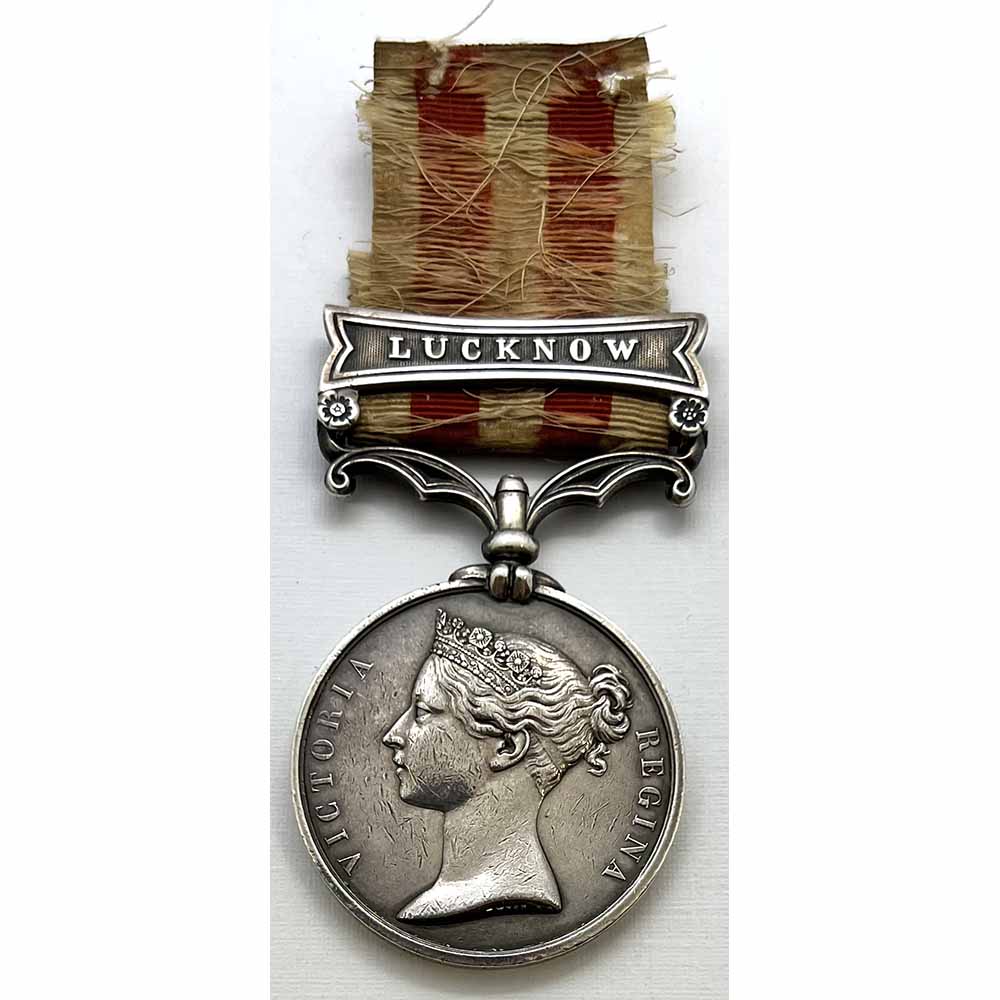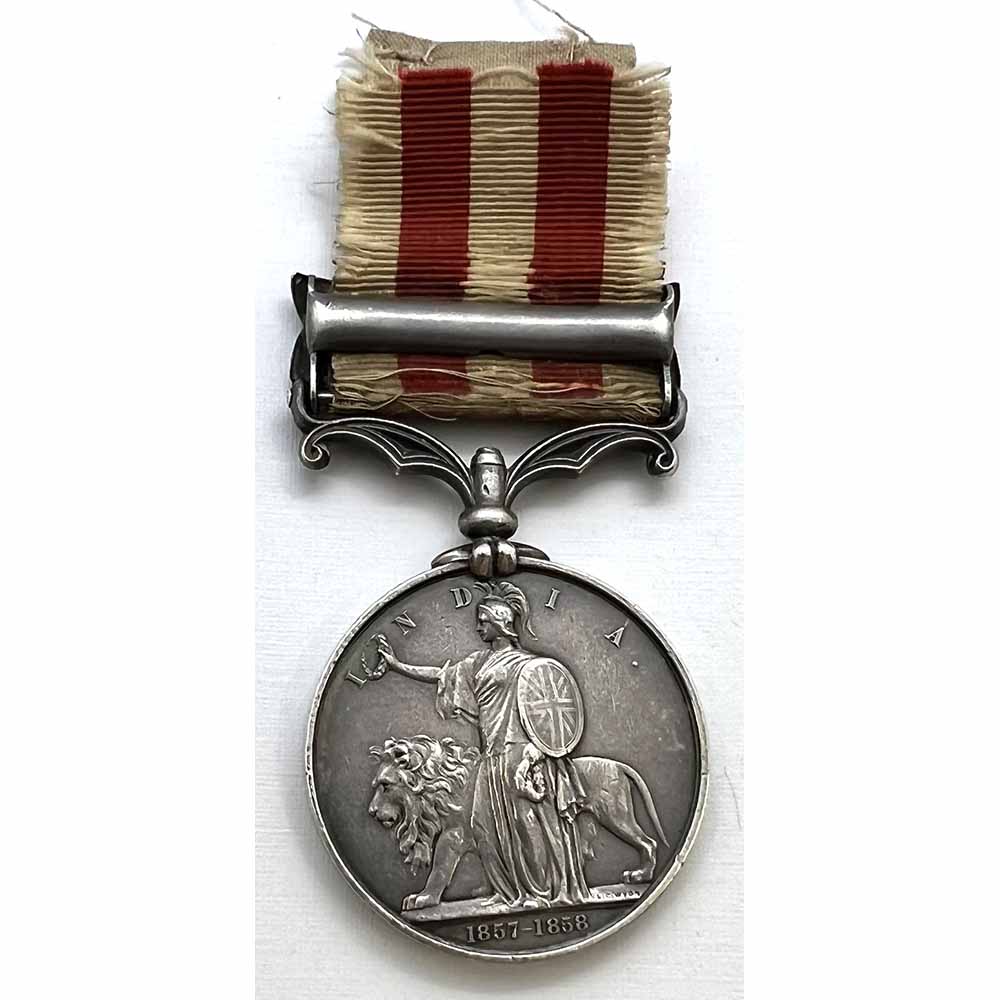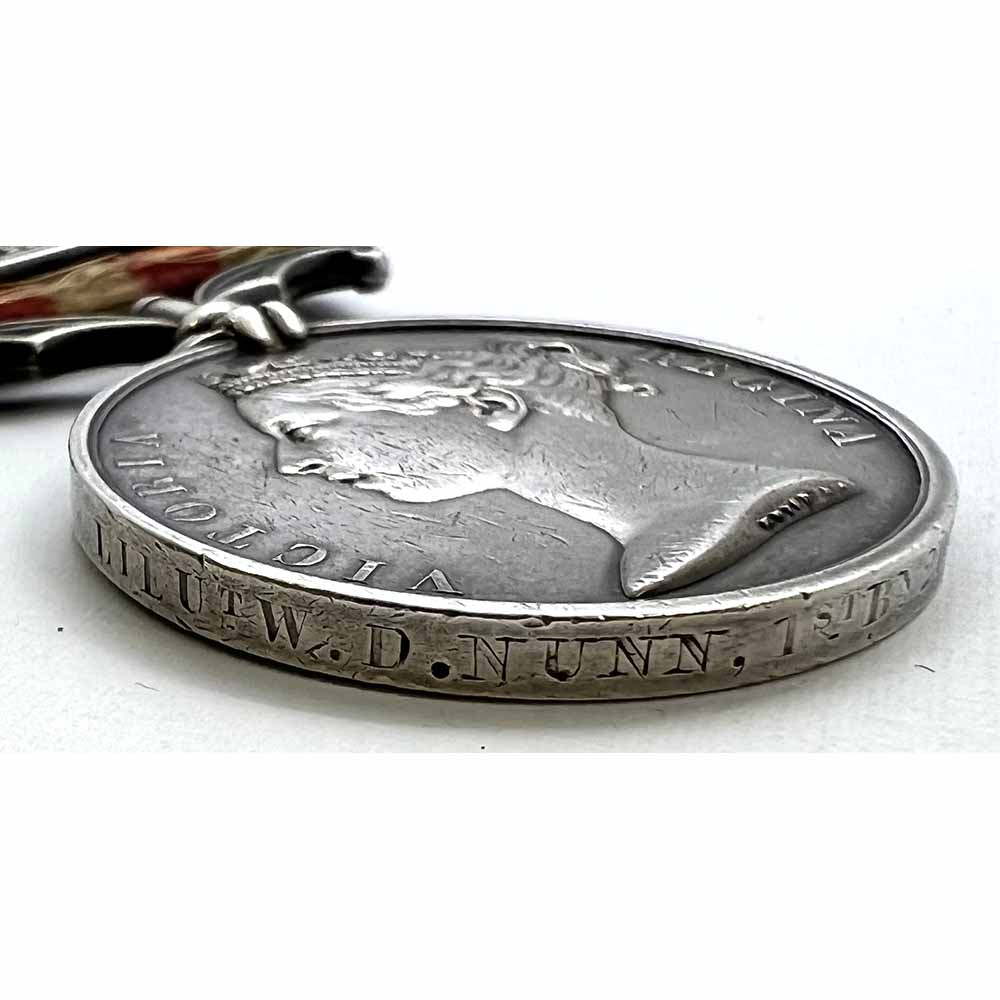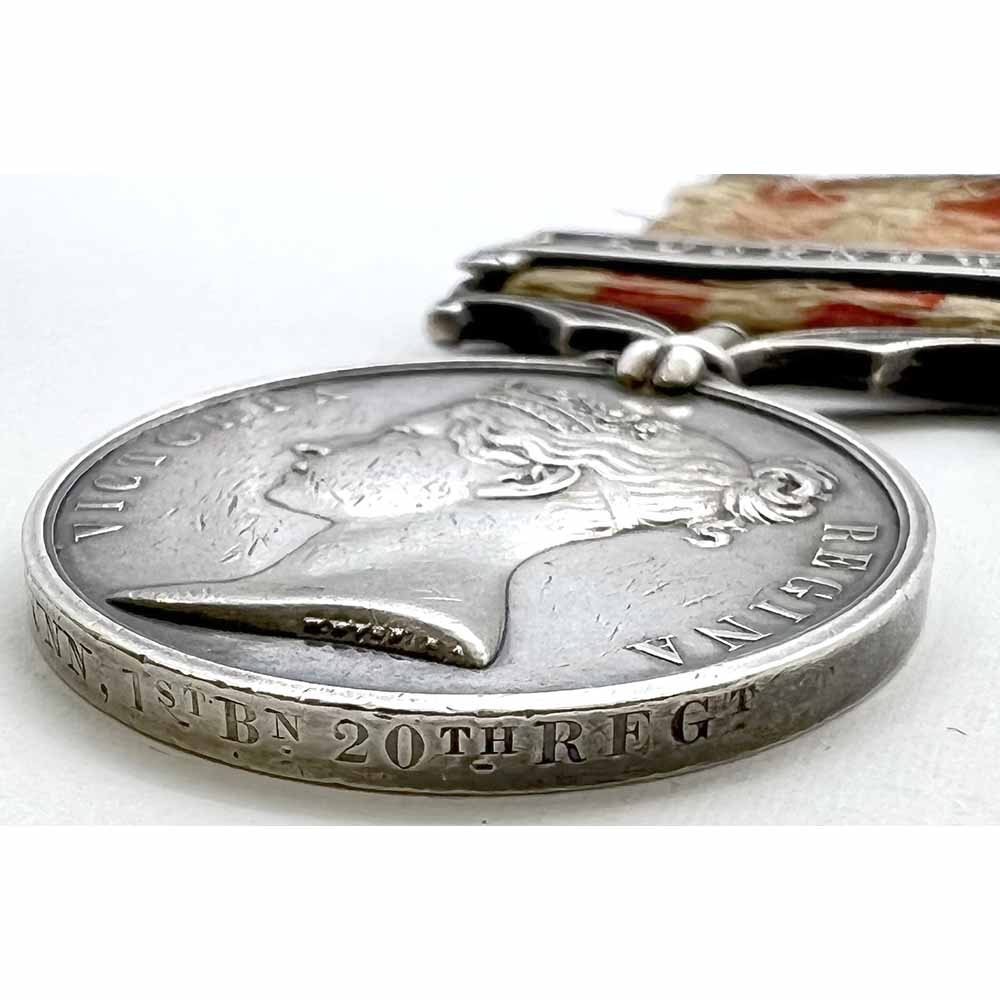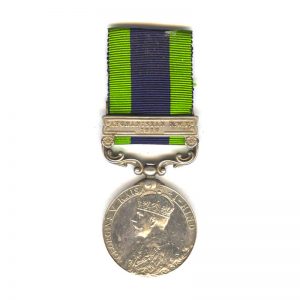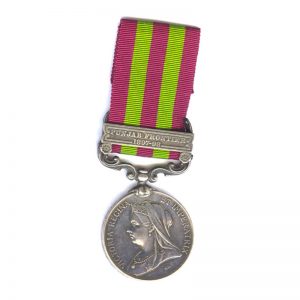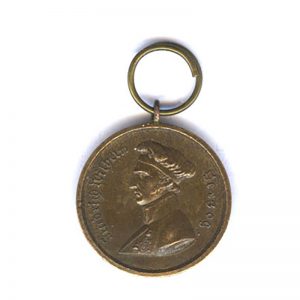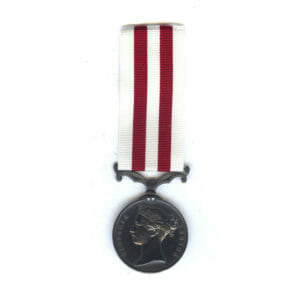Description
Indian Mutiny Medal, Lieut William David Nunn, 1st Battalion 20th Regiment of Foot.
Named: “Lieut W. D. Nunn. 1st Bn. 20th Regt” The naming is officially impressed, with some engraved “retouching” from the period to his surname. On an old and frayed length of silk ribbon.
Ex Dr. A. W. Scott Collection, DNW May 1997.
Obituary in the Gloucestershire Echo, 10th May 1909:
“DEATH OF MAJOR NUNN, CRIMEAN AND MUTINY VETERAN
After a lingering illness of some months duration, Major William David Nunn passed quietly away on Monday Morning at 3 Cambridge Villas, Cheltenham.
He belonged to an old Irish family that his given many of its sons to the army, his father being Capt John Oliver Howe Nunn, of the 86th Regiment.
He himself joined the 20th (east Devonshire) Foot as an Ensign on Feb 20, 1855, and soon afterwards set sail for the Crimea, where he served with his regiment at the Siege and Fall of Sebastopol, and also at the capture of Kimbourn for which he received the medal and clasp and the Turkish Medal.
In September of the same year he was promoted to a Lieutenancy, and in 1859 he became a Captain by Purchase; but before obtaining the latter step he had again seen active war service with his battalion in the Mutiny campaign, where ht took part in the actions at Chanda, Ameerapore, and Sultanpore, Siege and Capture of Lucknow, the subsequent operations in Oude, and the affairs of Mohan, Hussengunge, Meangunge (as Orderly Officer to Brigadier Evelegh), Churda, Fort of Mesjeedia, and Bankee (Medal with clasp).
He was promoted Brevet-Major in 1872 and exchanged the same to the 2nd Battalion of the regiment, from which he retired by sale of his commission in 1875.
Son after his retirement he came to live in Cheltenham, and was one of the oldest members of the New Club.”
William David Nunn, was born in Pau, France on 25th June 1834.
He was the son of Captain John Oliver Howe Nunn of the 86th Regiment.
He first entered the army as an Ensign in the 20th (East Devonshire) Regiment of Foot on 20th February 1855.
As the Crimean War was ongoing, he was posted to the Crimea and saw service in the siege and fall of Sebastopol, including the capture of Kinburn.
He was awarded the Crimean War Medal, bar Sebastopol and Turkish Crimea Medal, which were likely both issued unnamed.
In September 1855 he was promoted to Lieutenant. He would then see further active service in the Indian Mutiny, seeing service at the Battles of Chanda, Amerapore, Sultanpore, the Siege and Capture of Lucknow, operations in Oude and the affairs at Mohan, Hussengunge, Meangunge, where he served as Orderly Officer to Brigadier Evelegh, Churda, Fort of Musjeedia and bankee.
In July 1859 he became a Captain by Purchase and in July 1872 granted the Brevet of Major.
He exchanged to 2nd Battalion of the 20th Foot in November 1872, retiring by sale of his commission in 21st July 1875, retaining his rank.
Leading up to his retirement he married Clara Openshaw in January 1875 and retired to settle with his famiy at 3 Cambridge Villas in Cheltenham.
He later died on 10th May 1909.
Some info on the action at Meangunge where ht fought beside Brigadier Evelegh from the History of the 20th XX Regiment
“During September, the Nawabgunge column was undisturbed, but on the 8th of October the XX took part in an action which was fought at Meangunge, by Brigadier Evelegh, in which the rebels had about 250 killed, and 3 guns captured.”
